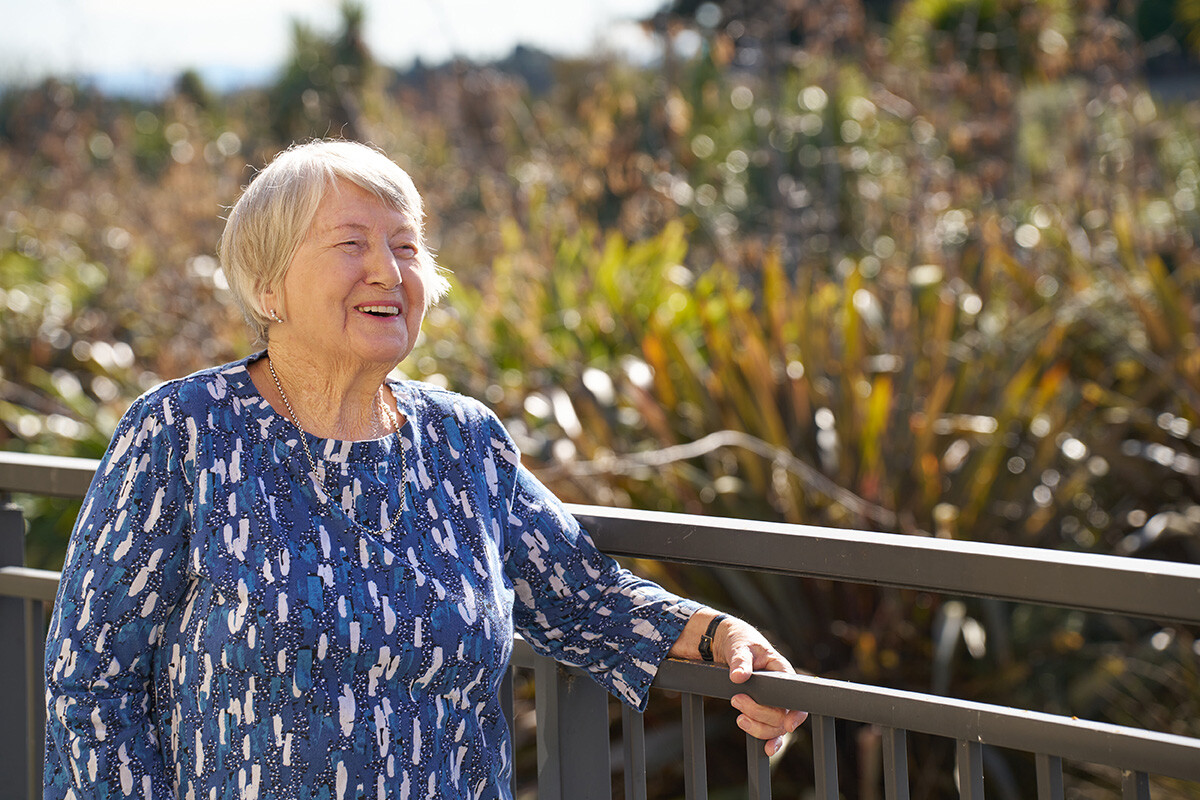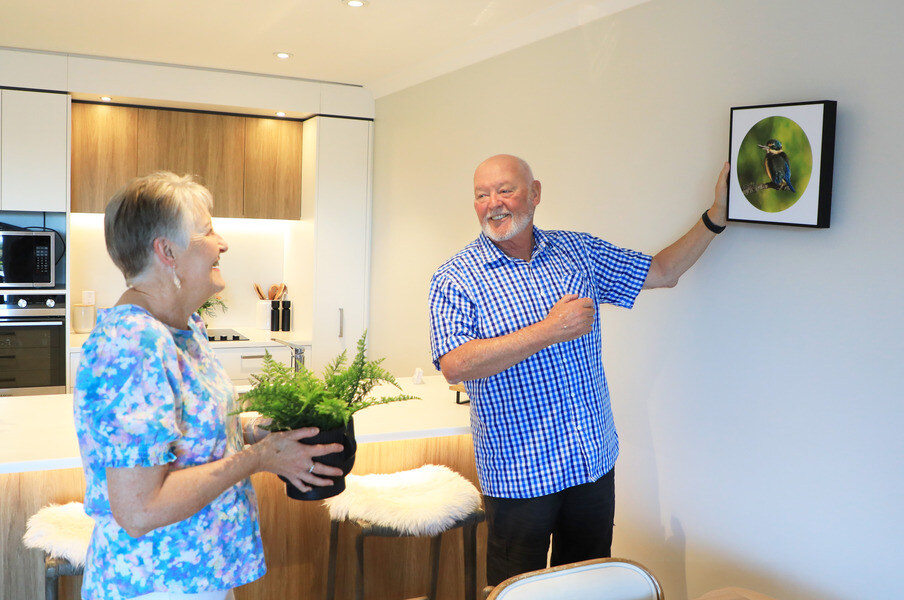How to stop post-retirement depression
How to stop post-retirement depression

Retirement is often viewed as a time of relaxation, travel, and personal freedom. While some people look forward to no longer working, for others, it can be a time of emotional upheaval and uncertainty. You may experience feelings of sadness and loss of purpose rather than excitement and happiness. If so, you’re not alone. A feeling of depression after retirement is something that many New Zealanders face at some point.
The good news is that this is often temporary as you adjust to your new lifestyle. If you are wondering how to emotionally cope with retirement, read on to discover practical approaches for tackling post-retirement depression, improving your emotional well-being, and truly enjoying your retirement.
Common causes of depression after retirement
A common cause of depression after retirement is the loss of daily routines and social interactions that come with the workplace. A person’s work can be an important part of their identity, and some people struggle with their self-worth and sense of purpose after leaving the workforce. Health concerns can also contribute to depression.
Lack of routine and purpose
The loss of routine and purpose can be a challenge, particularly if your career has been a significant part of your identity. After many years in structured work environments, you may find it difficult to transition to the unstructured free time of retirement, which can lead to feelings of emptiness. If work has kept you busy for a long time, you may even be unsure of what you truly enjoy outside of your professional life.
Social isolation
Workplaces often provide a built-in social network, and if you no longer see your former colleagues, you may feel isolated and disconnected. It can be hard to maintain these friendships when you no longer see each other in the workplace, which can lead to feelings of loneliness. You may also experience a sense of disconnection from your other social circles if your friends are still working. If you have mobility issues or don’t drive, this sense of isolation is often exacerbated, as it becomes harder to maintain social interactions or engage in activities outside your home.
“Village life is a very different way of living. A better way. You suddenly find yourself in a community.”
DAVID COATS
Resident
A loss of identity and self-worth
Work is a cornerstone of personal identity for many people, providing a sense of self-worth. This transition can lead to feelings of emptiness or a loss of self-worth in retirement, especially if you find it difficult to define yourself outside of your professional role or miss the recognition associated with your career.
Health concerns
As you age, you may face emerging health challenges that can significantly impact your well-being. The onset of conditions such as arthritis, hearing or vision loss, and mobility issues can make it harder to maintain the lifestyle you once enjoyed, leading to frustration and a sense of loss, which can contribute to feelings of anxiety or depression.
Recognising symptoms of post-retirement depression
Post-retirement depression can manifest in various ways, including persistent sadness, loss of interest in activities you used to enjoy, and a lack of motivation.
Common symptoms can also include:
- fatigue,
- difficulty sleeping,
- feelings of guilt or worthlessness, and
- social withdrawal.
You may also experience:
- changes in appetite or weight,
- irritability,
- trouble concentrating, and
- physical symptoms like aches and pains.
Everyone has bad days from time to time but if you feel this way most of the time since you retired, you could be experiencing post-retirement depression.
Why am I sad about retirement?
Even if you were looking forward to retirement, you may experience sadness and grief. If you’ve attached a significant part of your identity and sense of purpose to your work, it’s natural to feel this sense of loss. Allow yourself time to process this significant life change and adapt to your new lifestyle. It's normal to need time to adjust, and by accepting these emotions, you can begin to find new ways to embrace retirement and make it a fulfilling time of life.
Is it normal to feel lost when you retire?
Yes, it’s completely normal to feel lost when you retire. These feelings are a common emotional reaction to such a significant life change. If you accept and validate these emotions rather than ignore them, it enables you to take practical steps to feel better. Finding new passions, setting goals, and establishing a fulfilling routine can help ease this sense of loss and guide you toward building a satisfying and meaningful retirement.
How long does depression last after retirement?
This varies from person to person. You may experience prolonged struggles with depression, especially if you feel isolated or are dealing with significant health concerns. Or you might find that your feelings of depression are short-lived and fade as you establish new routines and friendships in retirement. Regardless, be patient with yourself and understand that going through a period of post-retirement depression does not mean you will always feel this way.

Strategies that can help with post-retirement depression
One of the best ways to have a great retirement is to plan for it before it happens. Financial planning is essential but so is emotional and social preparation. It’s important to consider:
- how you will spend your time,
- what activities will fill your cup, and
- how you will stay connected with others.
Below are several strategies that can help ease the transition and prevent or alleviate depression after retirement.
Establish new routines
As one of the major causes of post-retirement depression is the loss of routine, a good first step is to develop a new routine that you enjoy and that ideally gives you somewhere to be each day.
Think of things you enjoy or want to do but didn’t have time for when you were working and build them into your new daily routine. It’s ideal if some of these things get you outside the house for a change of scenery. It could be as ambitious as going back to university to study, or as relaxing as walking to your local café for a coffee every morning. The important thing is that it’s something you enjoy and can commit to doing regularly.

Pursue hobbies and interests
Taking the time that you used to dedicate to your work and channeling it into new experiences is a great way to feel energised. This is your chance to hone your golf game, brush up on new skills, or join a new club. Pursuing creative activities such as painting, writing, music, crafting, or learning a new language helps keep your mind active and creates a sense of accomplishment, which can boost your confidence and self-worth.
Volunteer and give back
Volunteering is a win-win – it’s a great way to give back to your community while also providing you with a sense of purpose. By dedicating time to local organisations or community initiatives, you can stay engaged, make a positive impact on others, and enjoy the emotional rewards of helping a cause you believe in. Volunteering also offers social benefits, as you’ll get to know other volunteers and potentially make new friends.
Stay physically active
You’re never too old to exercise, you just need to find the right way to do it. Staying physically active is essential for mental and physical health at every age. Regular exercise boosts your mood, reduces stress, and increases your energy levels and physical strength. In addition to the health benefits, joining fitness groups, sports teams, or community-based exercise programmes provides you with opportunities to meet new people.
Maintain and build social connections
Social isolation is a significant contributor to post-retirement depression and many retirees miss the camaraderie and social interactions at work. Planning regular social activities will help you maintain meaningful connections and reduce feelings of loneliness. Not everyone is a social butterfly, but everyone benefits from feeling they belong, so it can be as simple as regularly meeting a friend for a cup of coffee and a chat. If you want to expand your social circle, exploring clubs and interest groups can help you connect with like-minded people who share your interests.
Seek professional support
If adjusting to retirement is proving really difficult, it is a good idea to reach out to a counsellor or therapist who is skilled in helping people navigate big life changes. You may even be able to find support groups in your area where you can connect with others going through similar experiences. Some resources are linked at the bottom of this article.

Reframing retirement
Instead of seeing retirement as the end of a chapter, reframe it as an opportunity to pursue new adventures and set personal goals that excite you. This shift in perspective can make retirement feel like a fresh start, full of possibilities for learning, growth, and achievement.
Post-retirement depression can be a challenging experience, but it is not insurmountable. With proper planning and a willingness to embrace new opportunities, you can ease the transition and move forward into a rewarding new stage of life. Diving into hobbies, staying active, and maintaining social connections can prevent or greatly reduce post-retirement depression, helping you to enjoy a fulfilling and meaningful life after work.
Many Ryman residents have discovered the freedom to embark on new adventures, explore creative interests, and find joy and fulfillment in retirement.
Our expert team at Ryman is here to help, and we offer independent living, assisted living, and a range of care options, to help with a smooth and stress-free transition into retirement living.
Contact Ryman Healthcare for more information on how we can support you to build a retirement where you can thrive.
Additional resources and support
Age Concern NZ information and support services
SuperGold support and services for seniors
Seniorline support services for navigating the health system
by Christine McCurdy | Apr 15, 2025
Subscribe to our blog newsletter
You May Also Like
These Related Stories

Maintaining independence as we age: A guide for families and caregivers

The emotional side to downsizing


